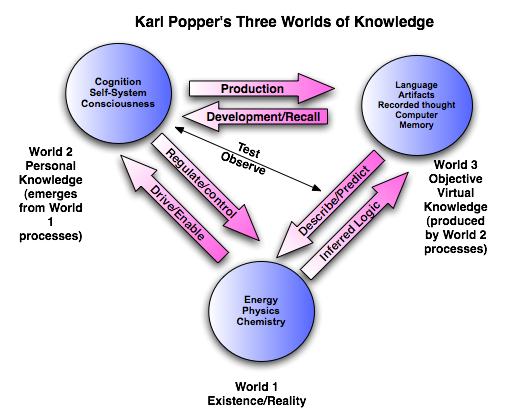fresco,
Do you consider Popper's three worlds of knowledge to be a good model?

[My own, more simplistic explanation:
-World 1 would be the physical universe. We do not always perceive the physical universe correctly.
-World 2 would be our personal perceptions.
-World 3 would be the theories generated through worlds 1 and 2 which have been accepted by most people as objectively valid.]